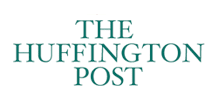
Michael Sakata Dives Deep into Infrastructure Challenges in Maryland and America
About the Guest(s):
Michael Sakata is the President and CEO of the Maryland Transportation Builders and Materials Association (MTBMA). Boasting over 20 years in the transportation sector, Michael has driven record membership growth and advocates for 35,000 workers and business owners. His impactful partnerships include appointments by Maryland Governors Wes Moore and Larry Hogan. Michael previously held significant roles at the American Road and Transportation Builders Association and has received accolades for innovation. He holds a degree from George Mason University and an Executive Education Certificate from Yale School of Management.
Episode Summary:
In this enlightening episode of The Chris Voss Show, Chris is joined by Michael Sakata, President and CEO of the Maryland Transportation Builders and Materials Association. Michael shares deep insights into the intricacies of infrastructure management, the state of US infrastructure, and the critical need for investments and innovations in this sector. The conversation ranges from specifics about local infrastructure projects to broader discussions about federal funding mechanisms and the challenges of maintaining and upgrading transportation systems.
The episode kicks off with Chris and Michael discussing the importance of infrastructure and the repercussions of failures like the Francis Scott Key Bridge incident. Michael addresses the current state of infrastructure in the US and underscores the necessity for sustained funding and innovative solutions to overcome the challenges posed by outdated systems and modern-day needs. They also delve into the intricacies of the Infrastructure Investment and Jobs Act (IIJA) and its impact on infrastructure projects across the nation. Other topics include the role of public-private partnerships, the influence of electric vehicles on gas tax revenue, and the critical importance of active citizen engagement in lobbying for better infrastructure.
Key Takeaways:
Infrastructure’s Critical Role: Michael stresses that robust infrastructure is essential for economic stability and public safety, reflecting on the devastating impact of infrastructural failures like the Francis Scott Key Bridge.
Federal and State Funding: Federal funding, largely stagnated since 1993 without increased gas taxes, is insufficient alone. States need to find innovative funding solutions to supplement these shortfalls.
Public-Private Partnerships (P3s): P3s are highlighted as an essential strategy for developing infrastructure quickly, though they come with long-term costs and commitments.
Impact of Electric Vehicles (EVs): EVs, due to their lower contribution to gas taxes and heavy weight, pose unique challenges for infrastructure funding and maintenance.
Actionable Advocacy: Engaging with legislators to emphasize the importance of infrastructure funding is crucial for sustaining and improving transportation systems.
Notable Quotes:
“Infrastructure improvements are essential to move us from a C rating to something more respectable, ensuring the economic well-being and safety of our nation.”
“The federal gas tax hasn’t increased since 1993, and this stagnation is a significant hurdle for funding infrastructure.”
“Public-private partnerships can fast-track infrastructure projects, but come with the obligation of long-term tolls and private management.”
“Electric vehicles, despite their environmental benefit, are not contributing similarly to infrastructure maintenance due to their minimal gas tax payments.”
“It’s vital for citizens to lobby their legislators for improved infrastructure funding – our roads, bridges, and overall transport systems depend on it.”
Podcast: Play in new window | Download (Duration: 34:34 — 23.7MB) | Embed
Subscribe: Apple Podcasts | Spotify | Amazon Music | Pandora | iHeartRadio | Podchaser | TuneIn | Deezer | RSS | Subscribe Links





